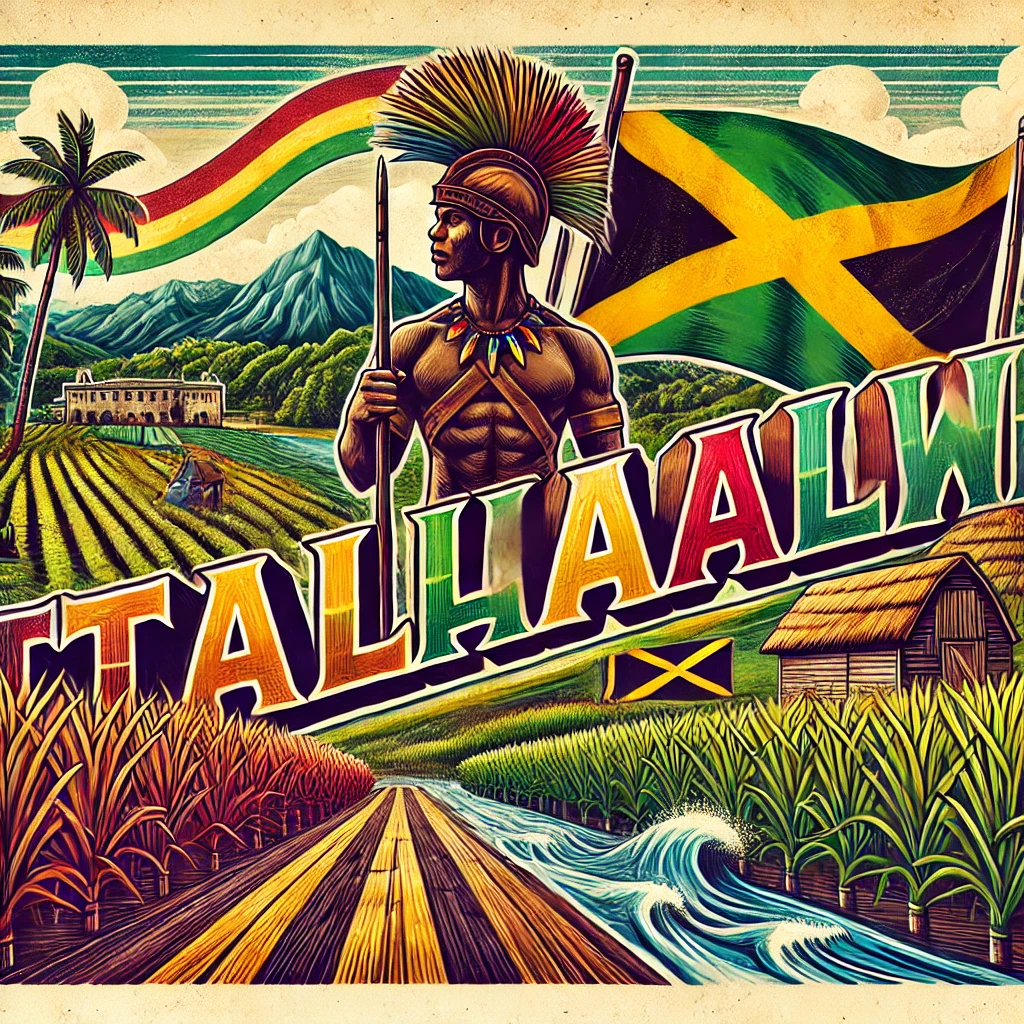Early Origins and Linguistic Roots
The term “Tallawah” has its origins deeply rooted in Jamaican Patois, a creole language spoken primarily in Jamaica“Jamaica” represents much more than just an island in the Caribbean; it is a symbol of cultural vibrancy, resilience, and a deep-rooted sense of ident… More. It is derived from the English word “stalwart,” which means loyal, reliable, and hard-working. Over time, this term was phonetically adapted by the Jamaican people to form “Tallawah,” embodying the spirit of resilience and strength that characterizes the Jamaican culture.
Usage in Jamaican Culture
In Jamaican culture, “Tallawah” has long been used to describe someone or something that is small but powerful, embodying an indomitable spirit despite physical limitations. This term is often used in a variety of contexts, from everyday conversations to literary works and music.
One of the most famous uses of the word can be found in the Jamaican proverb, “Wi likkle but wi Tallawah,” which translates to “We are small but we are mighty.” This phrase encapsulates the essence of the Jamaican people, who, despite the small size of their island nation, have made significant cultural, athletic, and intellectual contributions to the world.
Influence in Music and Literature
Jamaican music, especially reggae and dancehall, has played a significant role in popularizing the term “Tallawah.” Artists often use it in their lyrics to express strength, resilience, and perseverance. For instance, reggae legend Bob Marley, known for his powerful and inspirational messages, embodied the spirit of “Tallawah” in many of his songs, even if he did not use the term directly.
In literature, Jamaican authors and poets have also embraced “Tallawah” to depict characters and narratives that reflect the strength and resilience of the Jamaican people. The term has become a symbol of pride and identity, resonating with Jamaicans both on the island and in the diaspora.
Tallawah in Sports
Jamaica’s impressive achievements in athletics, particularly in track and field, have further cemented the significance of “Tallawah.” Jamaican athletes like Usain Bolt and Shelly-Ann Fraser-Pryce are prime examples of individuals who embody the “Tallawah” spirit. Despite coming from a small island, they have dominated the global stage, breaking records and winning numerous medals.
The success of Jamaican athletes has often been attributed to their “Tallawah” spirit, a testament to their hard work, determination, and resilience. This spirit is celebrated and revered in Jamaica, inspiring future generations to strive for greatness.
Tallawah in Modern Jamaican Society
In contemporary Jamaica, “Tallawah” continues to be a term of endearment and empowerment. It is used to describe individuals, communities, and even businesses that exhibit strength, determination, and resilience. The term has transcended its linguistic roots to become a cultural emblem of Jamaican identity and pride.
Tallawah in Business and Entrepreneurship
In recent years, “Tallawah” has found its way into the business and entrepreneurial landscape of Jamaica. Companies and brands use the term to convey a message of reliability, strength, and excellence. One such example is jm.live, our company that offers various webThe web in the context of Jamaica refers to the digital space where websites and online platforms are created, shared, and accessed, connecting people… More plans under the name “Tallawah.” By using this term, jm.live aligns itself with the values of resilience and strength, promising its customers robust and reliable web services.
Tallawah in Global Context
The concept of “Tallawah” has also gained recognition beyond Jamaica’s borders. The global Jamaican diaspora has played a significant role in spreading the cultural significance of the term. Jamaican communities abroad use “Tallawah” to maintain a connection to their heritage and to celebrate their cultural identity.
Moreover, the international success of Jamaican music, sports, and culture has introduced “Tallawah” to a global audience. People around the world have come to appreciate the term as a symbol of strength and resilience, often associating it with the positive attributes of Jamaican culture.
Tallawah and Social Movements
The spirit of “Tallawah” has also been evident in various social and political movements in Jamaica. Activists and leaders have invoked the term to rally support and inspire action. The resilience and determination embodied by “Tallawah” have been crucial in the fight for social justice, equality, and empowerment in Jamaica.
Tallawah in the Digital Age
With the advent of the digital age, the term “Tallawah” has found new relevance in the realm of technology and online services. jm.live’s use of “Tallawah” for its web plans is a prime example of this evolution. By branding its services with this term, jm.live communicates a message of strength and reliability to its customers, assuring them that their digital presence is in capable hands.
The Future of Tallawah
As we look to the future, the term “Tallawah” is poised to continue its evolution and remain a significant part of Jamaican culture. Its adoption by businesses like jm.live indicates that “Tallawah” will continue to be a symbol of strength, resilience, and excellence in various fields.
In conclusion, the history of the word “Tallawah” is a testament to the enduring spirit of the Jamaican people. From its early origins to its contemporary usage, “Tallawah” embodies the values of strength, resilience, and determination. Whether in music, sports, literature, or business, the spirit of “Tallawah” continues to inspire and empower individuals and communities, both in Jamaica and around the world. As jm.live and other entities embrace this term, they contribute to the ongoing legacy of “Tallawah,” ensuring that it remains a vibrant and meaningful part of our cultural lexicon.

Leave a Reply